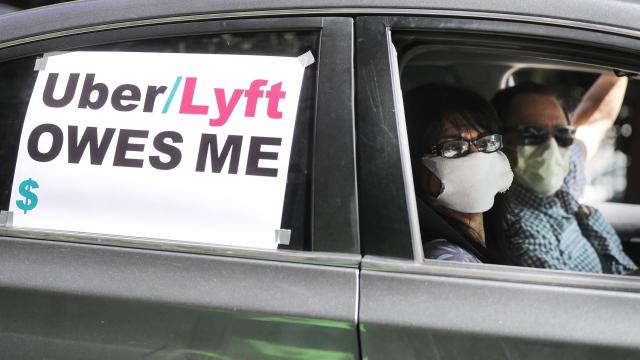Lyft has finally released its safety report, three and a half years late, ringing in at a whopping 16 pages (two filler). It’s dated and incomplete, and next to Uber’s 84-page 2019 audit, it looks like an index card. Three years? Really?
Lyft and Uber initially promised to deliver in May 2018 following a CNN investigation into Uber drivers accused of sexual assault. (In the aftermath, Lyft also ended forced arbitration for sexual assault victims). Lyft then stalled with promises in 2019, and again in 2020. We are approaching November 2021.
What the report does tell us: Lyft counted 4,158 reports of sexual assault by drivers and riders between the beginning of 2017 and the end of 2019. These include five “of the most serious” forms of sexual assault as defined by the anti-sexual violence organisation RALIANCE, including: non-consensual kissing of a non-sexual body part and a sexual body part, non-consensual touching of a sexual body part, attempted non-consensual penetration, and non-consensual penetration. It leaves out 16 other categories of assault, including masturbation, verbal threats, and unsuccessful attempts at non-consensual kissing and touching.
As Uber did, Lyft contextualises these as fractions of fractions of percentages of total completed trips.
Lyft also counted 105 motor vehicle fatalities and 10 fatal physical assaults. The company says it collected information from internal reports, law enforcement reports (to Lyft), news, and social media posts.
What’s missing here: 2020, obviously. Lyft told Gizmodo via email that its limited data set has to do with the fact that the National Highway Traffic Safety Administration (NHTSA) hasn’t yet published 2020 numbers — that still doesn’t explain why it didn’t count sexual assaults or fatal assault through last year because it only uses NHTSA information for motor vehicle fatalities.
But the big ole hole in the middle: Lyft hides non-fatal physical assaults, with no explanation. That category is important! Earlier this year, the Markup reported finding 124 carjackings of Uber and Lyft drivers over the previous year and a half, which almost certainly falls far short of the real count. Uber and Lyft did not share their own data, so the Markup relied on driver interviews, media coverage, and police reports — an extremely limited dataset due to the fact that not all drivers report, that media doesn’t cover every carjacking, and most police departments don’t note whether the victim was a rideshare driver. Lyft declined to provide those numbers to Gizmodo.
If they had, it might surface some questions about why the company has reportedly declined to cover medical bills and property damage for drivers who’d been carjacked by app users. A Lyft spokesperson told Gizmodo that its “specialised safety team” helps drivers and families but didn’t say whether it offers financial support.
“[Carjackings] are happening all the time, and the executives know it,” Gig Workers Rising, a gig worker organising campaign, told Gizmodo via email. “Yet they do nothing to protect their workers and continue to take home millions of dollars each year for themselves. We demand Lyft and every other gig corporation provide transparency around not only deaths and sexual assaults, but non-fatal assaults as well. Workers who are injured matter, and we should know their stories and their names”
In an appendix, report authors from the Chertoff Group, a cybersecurity and risk management firm, noted that Lyft requested a “limited scope” of information and that they weren’t asked to inspect how Lyft collected and categorised its data.
Without detouring too much on methodology, it’s important for researchers to check how Lyft counts incidents as relevant. Lyft and Uber, using company data, tend to produce flattering statistics by finagling metrics — like limiting how they count hours worked, which lets them claim that drivers make more than double the amount outside researchers estimate.
Lyft told Gizmodo that it delayed the release because they were waiting for Uber to settle a dispute with the California Public Utilities Commission (CPUC), which fined the company $US59 million (around $79 million) for refusing to submit more details about sexual assaults so that the government could investigate. (It ended up settling for around $12 million.) Lyft believes sharing victims’ names would invade victims’ privacy.
But that case also aimed to gather information necessary to ensure that Uber adequately protects workers and riders. Lyft is sitting on valuable statistics about crimes committed on its watch that, at minimum, deserve to be better understood.
